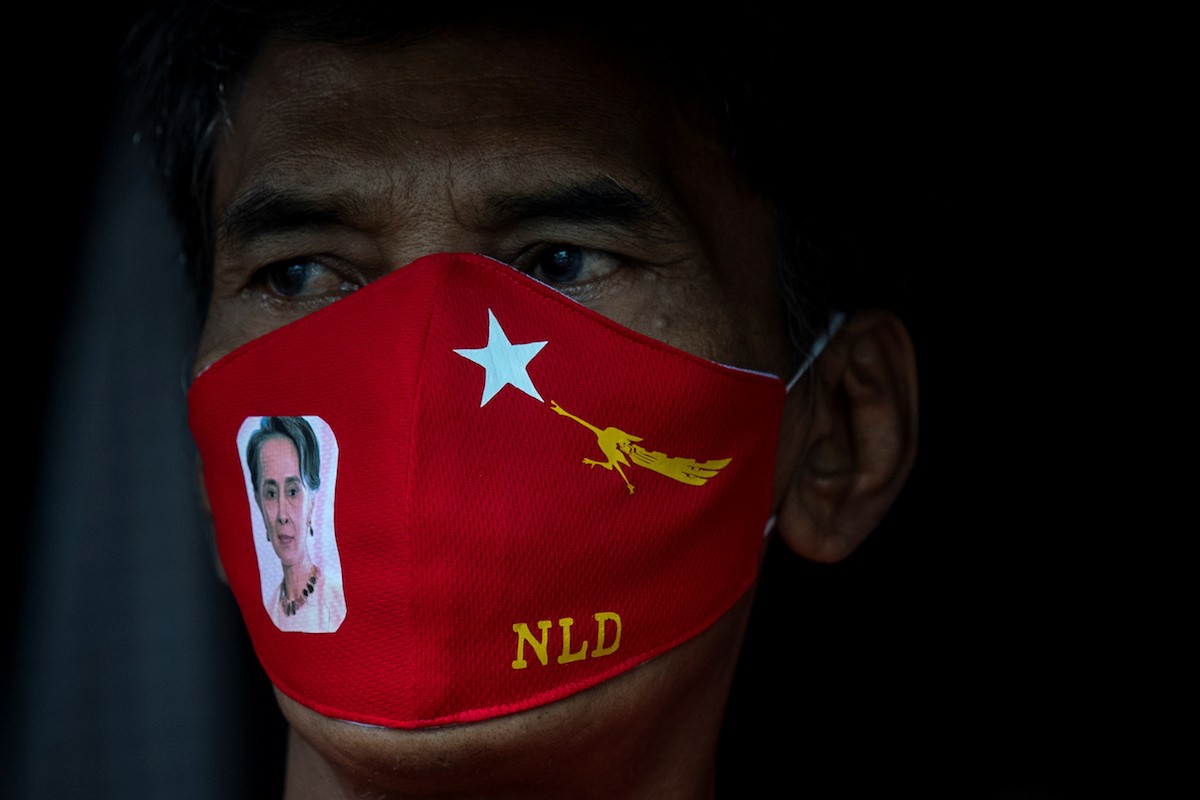An international rights group has said Myanmar’s electoral process is undermined by systemic problems and rights abuses that will deprive people of their right to fairly elect their government.
Human Rights Watch said that the country has a range of electoral problems that will affect parliamentary, state, and local elections scheduled for Nov. 8.
“It’s a milestone for Myanmar to be holding a second multiparty election, but however long the lines are to vote, this election will be fundamentally flawed,” said Brad Adams, HRW’s Asia director.
“The election can’t be free and fair so long as a quarter of the seats are reserved for the military, access to state media isn’t equal, government critics face censorship or arrest, and Rohingya are denied participation in the vote,” he said.
The national elections will be Myanmar’s first since 2015, which resulted in a landslide victory for the National League for Democracy (NLD), and the second contested election since 1990, when the military annulled the NLD’s overwhelming victory.
Although there has been a recent surge in COVID-19 cases in the country, election officials say the elections will take place as scheduled. Many opposition parties have said that the government should postpone the vote because they are unable to campaign in the current circumstances.
HRW said that because of the increase in COVID-19 cases, the authorities have issued stay-at-home orders in the commercial capital, Yangon, and parts of Mandalay, Rakhine State, Mon State, Bago, Ayeyarwaddy, and elsewhere. Only people engaging in “essential” business are allowed to travel between townships in affected areas.
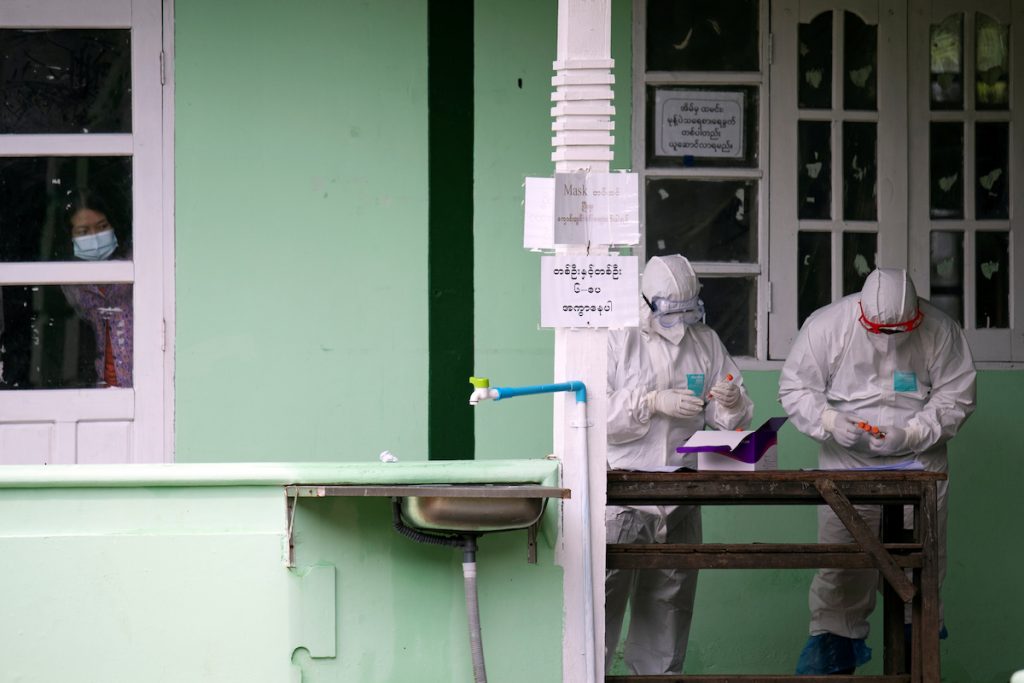
On Sept. 20, the government declared journalism a nonessential business, leaving many journalists subject to stay-at-home orders and creating significant barriers for their travel to election-related events and for publications to produce physical copies of newspapers and magazines.
Many well-known media outlets have stopped selling newspapers, while the two state-owned newspapers, which are supportive of the government, have been able to continue printing.
“The NLD government, which suffered under military oppression for decades, should recognize that an election without media freedom isn’t fair,” Adams said. “The government should reverse its decision and declare media workers ‘essential.’”
Rohingya
The Myanmar government is using the discriminatory 1982 Citizenship Law and the Election Law to disenfranchise Rohingya and prevent them from running for office, even though most Rohingya families have lived in Myanmar for generations, Human Rights Watch said.
Many Rohingya were hopeful that after the 2015 elections, NLD leader Aung San Suu Kyi would change these laws and policies. Instead, the NLD has supported the military as it carried out ethnic cleansing, crimes against humanity, and possible genocide against the Rohingya in Rakhine State.
None of the one million Rohingya refugees in Bangladesh and another several hundred thousand dispersed in other countries will be allowed to vote.
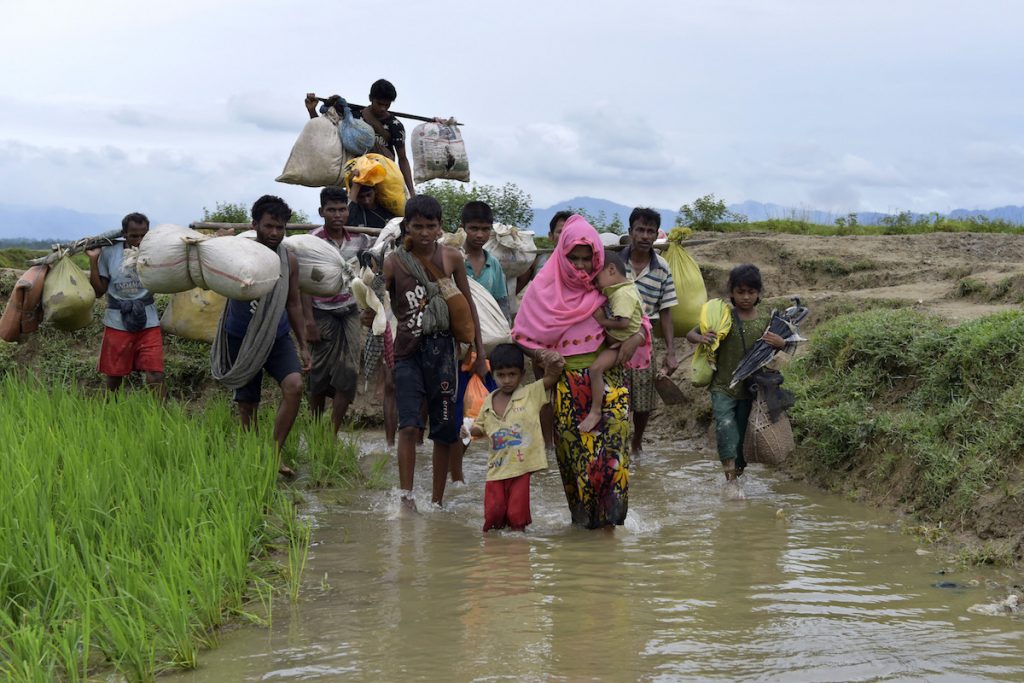
The authorities have barred most Rohingya remaining in Myanmar, estimated at 600,000, from registering to vote in the election. This includes approximately 130,000 Rohingya detained in camps in central Rakhine State since 2012.
“It’s appalling that Aung San Suu Kyi is determined to hold an election that excludes Rohingya voters and candidates,” Adams said.
Key election-related issues
HRW pointed out that many internationally recognized elements for a free and fair election are missing from Myanmar’s electoral process. International standards include the rights to freedom of expression, association, peaceful assembly, and movement; participation by candidates and voters in an environment free from violence, threats, and intimidation; universal and equal suffrage; the right to run for office; the right to vote and cast a secret ballot; and freedom from discrimination.
HRW also pointed out how government-imposed internet restrictions in Rakhine and Chin States will have a serious impact on the ability of voters in the affected areas to access information about candidates, parties, and their positions.
Likewise, armed conflict between government forces and ethnic armed groups in many parts of the country has greatly complicated election planning, campaigning, and the possibility of free and fair elections in many localities.
Fighting involving the Arakan Army, an ethnic Rakhine armed group, has prevented the election commission from posting voter lists in several areas across Rakhine State. Much of the administrative infrastructure necessary for carrying out free and safe elections has been dismantled over almost two years of steady fighting.
HRW said that decades of armed conflict has led to over 230,000 people living in long-term displacement camps nationwide and hundreds of thousands living as refugees across Myanmar’s border.
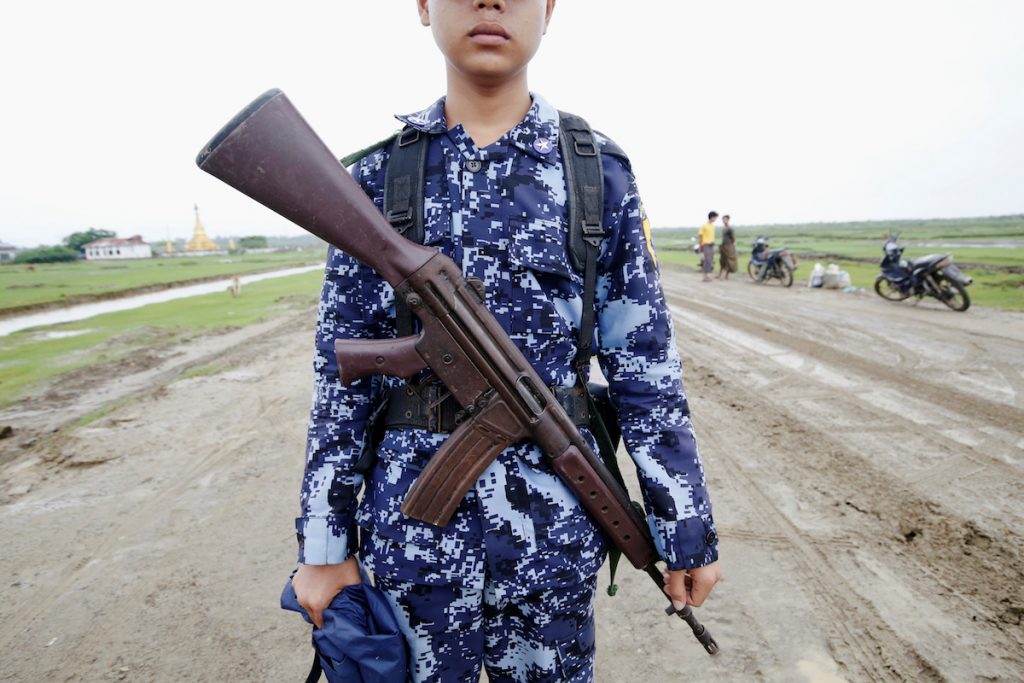
An additional 200,000 have been displaced since January 2019 due to fighting in Rakhine and Chin States, according to estimates from local groups. Election rules require internal migrants to provide certification that verifies that they have lived in current residence for a minimum of 90 days. This will affect the participation of many Rakhine Buddhists, Chin, and Mro people.
People in parts of Kachin, Karen, and Shan States are unlikely to be able to vote. No voting will take place in Wa State, an autonomous region.
Criminal Prosecutions of Critics
HRW said that dozens of students have been charged or are facing arrest for offenses that could carry up to two years in prison after they distributed pamphlets and stickers demanding an end to the fighting in Rakhine State and immediate lifting of all internet restrictions.
Members of the All Burma Federation of Student Unions said that the authorities charged many of the students under Penal Code section 505(b), while others were charged for failing to give notice of the protests.
Section 505(b) of the Penal Code is overly broad, prohibiting speech that may cause “fear or alarm in the public” and lead others to “upset public tranquility.” The law has long been used against speech critical of the government.
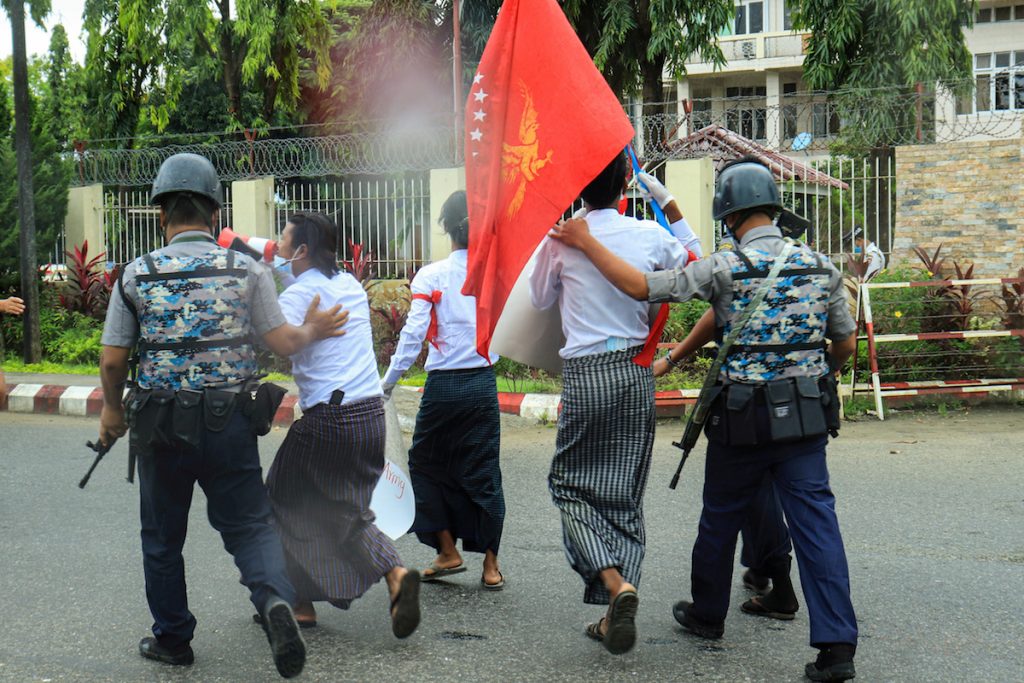
Unequal access to state media; limitations on media freedom
In July, the Union Election Commission announced that political parties would be permitted to deliver electoral speeches and explain party policies on state-owned television and radio stations during the two-month period leading up to the polls. However, HRW said that the commission had to approve all political broadcasts in advance under overly broad and vague restrictions on what political parties can say, in violation of international standards for freedom of speech.
The NLD government has used state media regularly to promote its policies and deemed successes while the other parties are each given one chance to set out their platform on state-owned broadcast media. At the same time, at least four parties canceled the broadcast of their campaign speeches on state media due to what they said was the commission’s censorship of their speeches.
In September, the election commission chairman, Hla Thein, said he recognized the important role of journalists and media for elections to be free, transparent, and credible. However, persecution of journalists and ethnic media continued.
The government also issued a directive to internet services providers to block a number of ethnic news outlets, claiming national security concerns and publication of “fake news.”
In August, the authorities ordered internet service providers to block the website of Justice for Myanmar, a group of activists working to expose corruption in the military, claiming that it was publishing “fake news.”
Undemocratic constitution
HRW said that under Myanmar’s 2008 constitution, promulgated by the military after a sham referendum held to ensure the protection of its interests, only 75 percent of seats in Myanmar’s parliament are up for election, while 25 percent of seats in both the upper and lower houses are reserved for serving military appointees.
Any party not affiliated with the military must win over two-thirds of the remaining seats to form a majority in the parliament, while military-affiliated parties need to win just over one-third of the seats to obtain an effective majority.
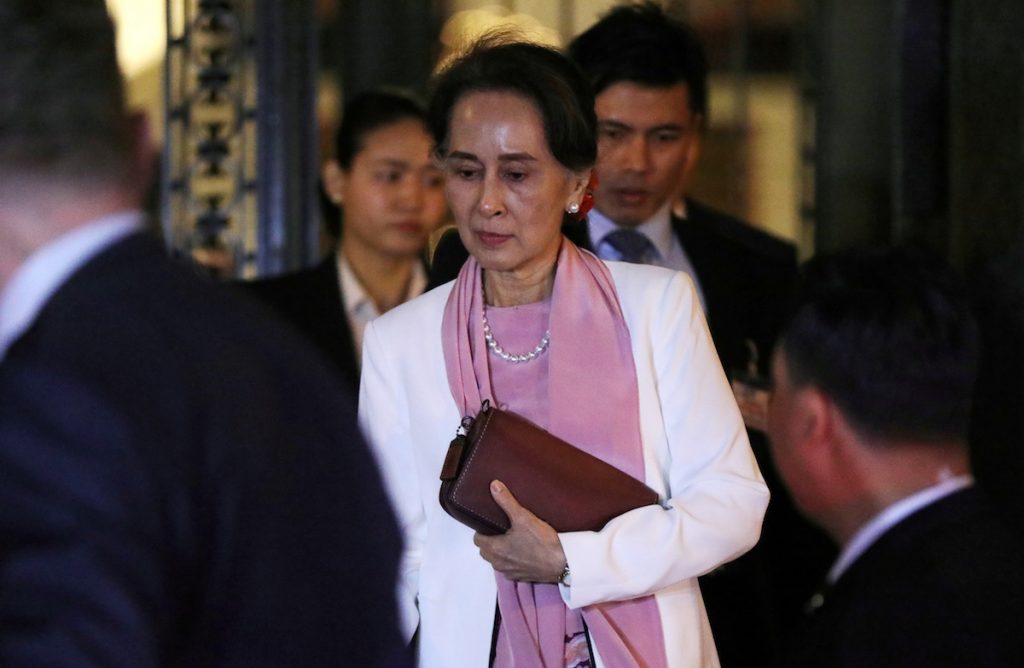
In its 2015 landslide victory, the NLD took 86 percent of all eligible seats in the lower house of parliament. The NLD campaigned on a platform of constitutional reform.
However, it was unable to amend the constitution without votes from among the 25 percent of members of parliament appointed by the military, as the constitution requires a 75 percent vote to amend the charter. Efforts since then to remove the military’s veto have failed, HRW said.
The rights group pointed out that to deny Aung San Suu Kyi the presidency, the military included a provision in the constitution that the president cannot have a spouse or children possessing foreign citizenship.
Suu Kyi’s two sons hold foreign passports. Suu Kyi partially circumvented this after the 2015 election by creating a new office of State Counsellor, which she filled, but she remains barred from the presidency.

